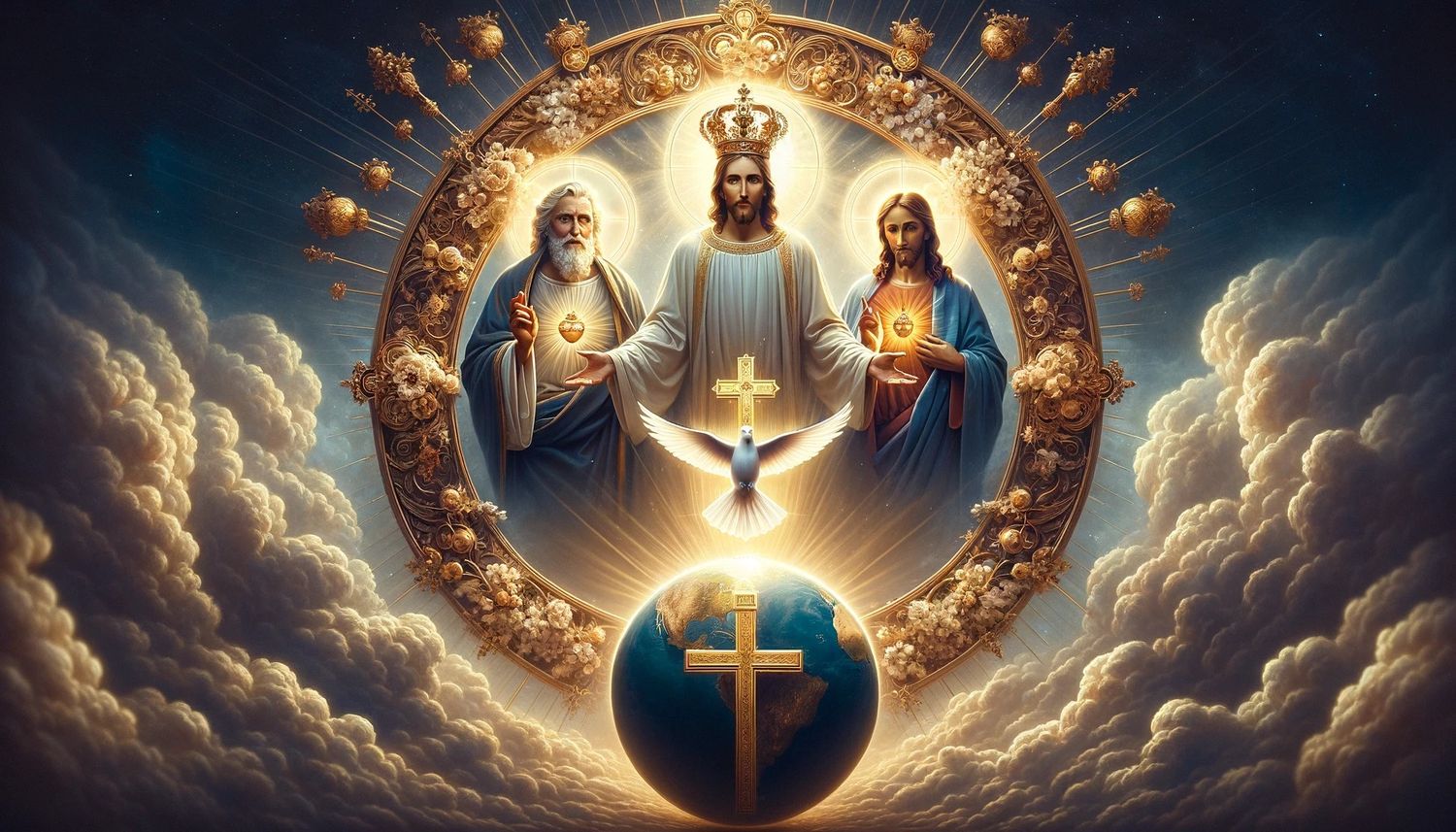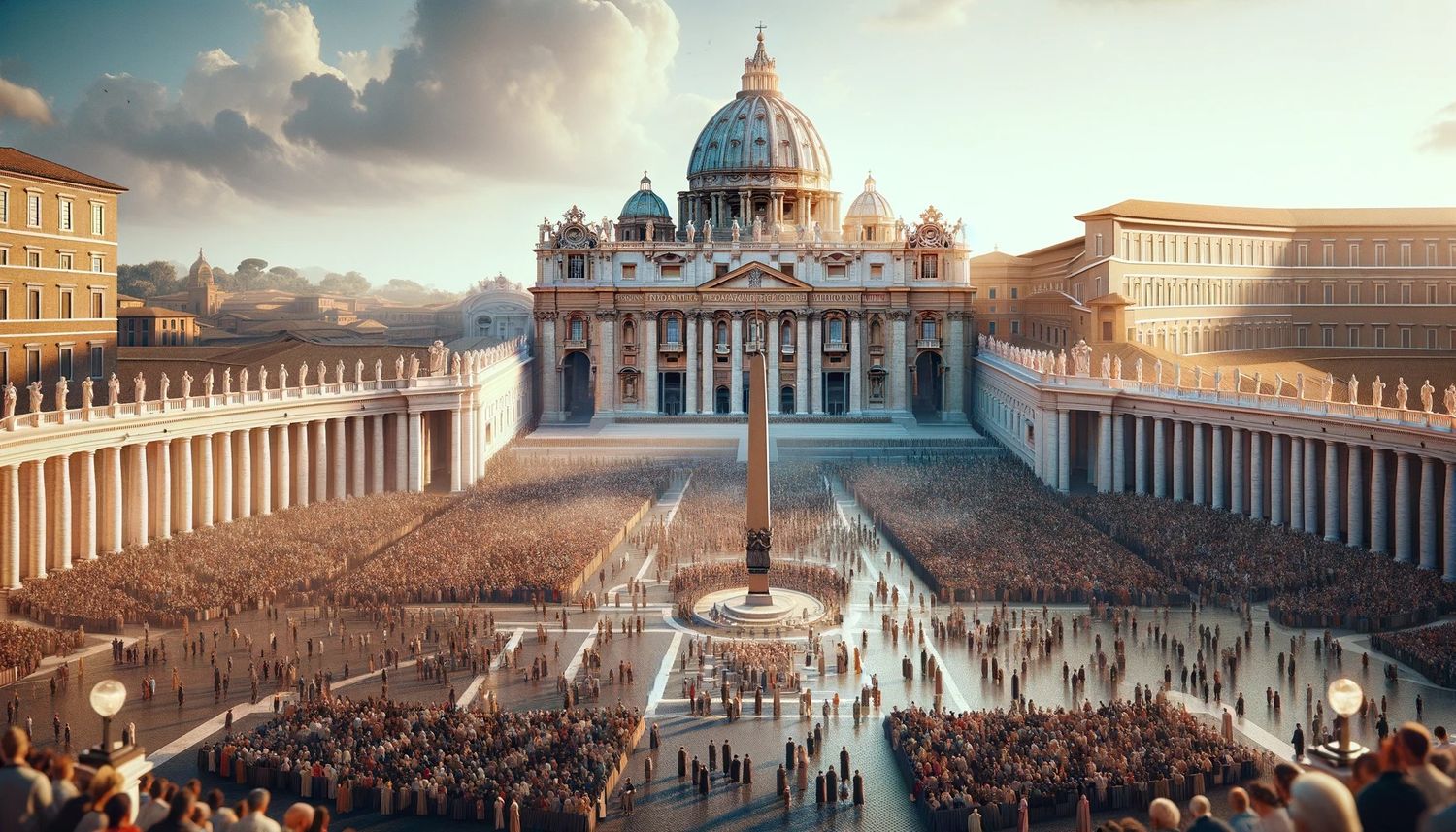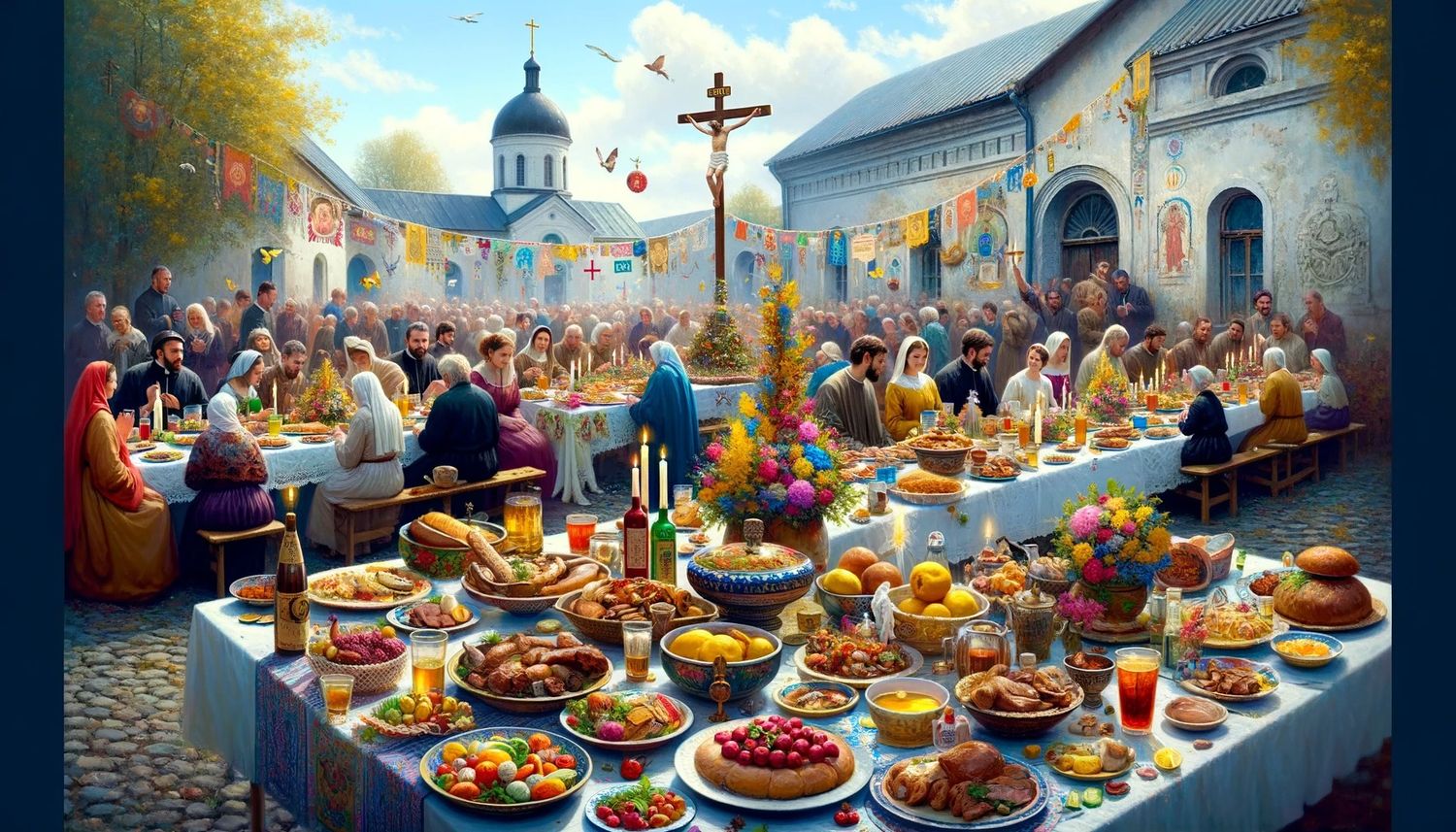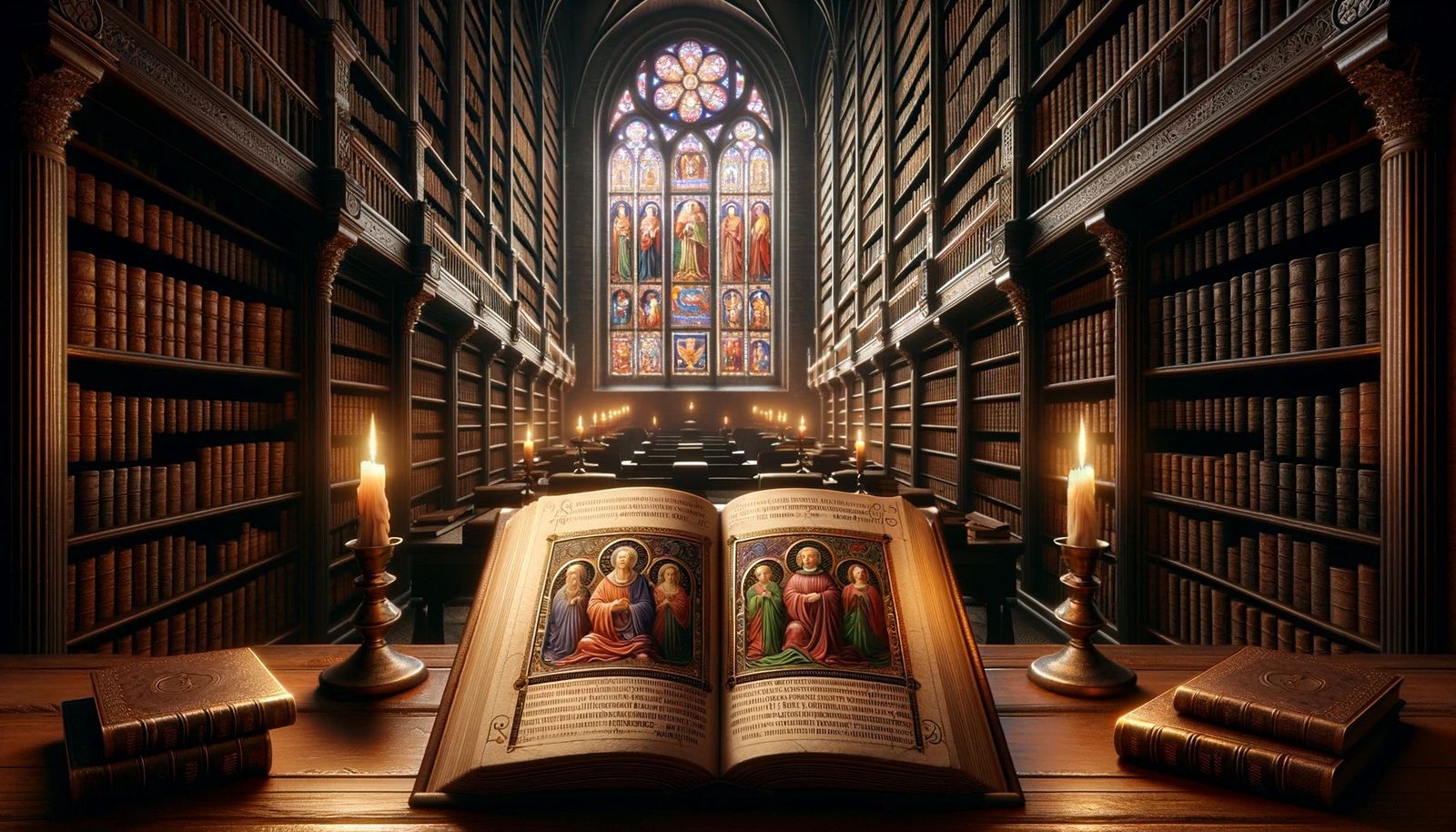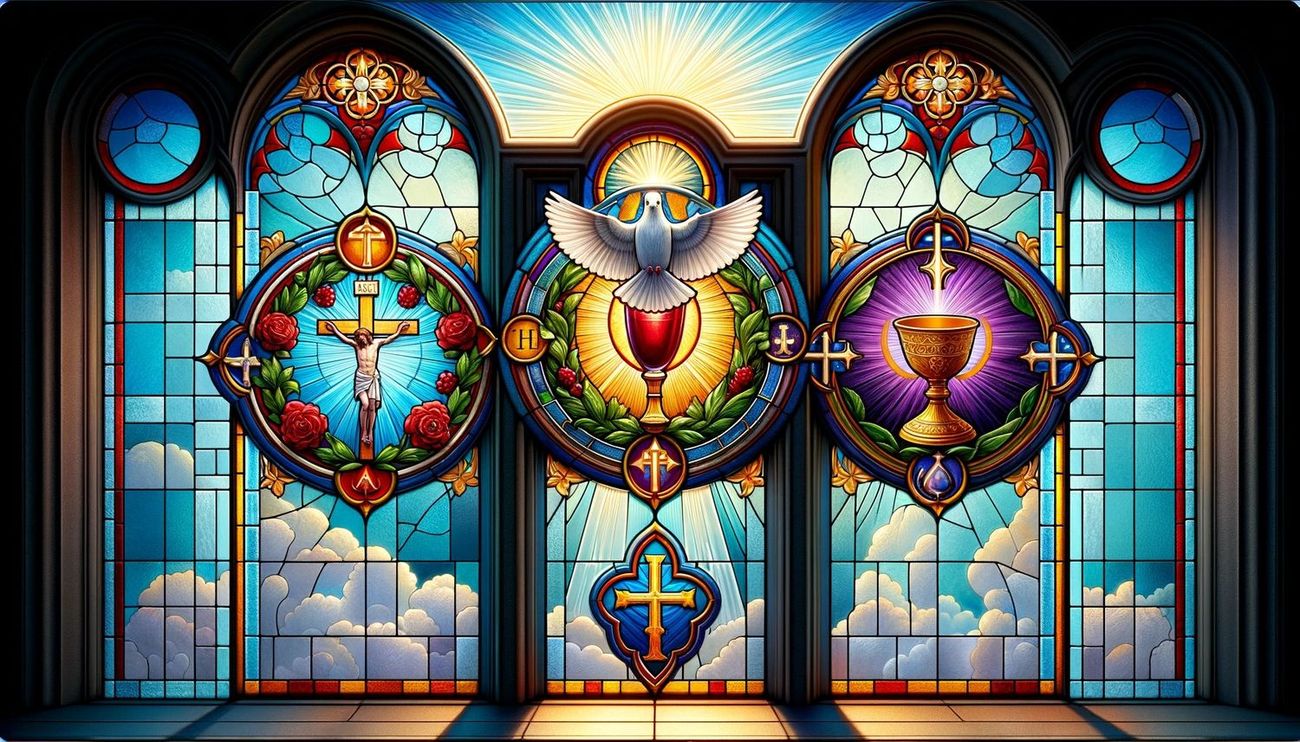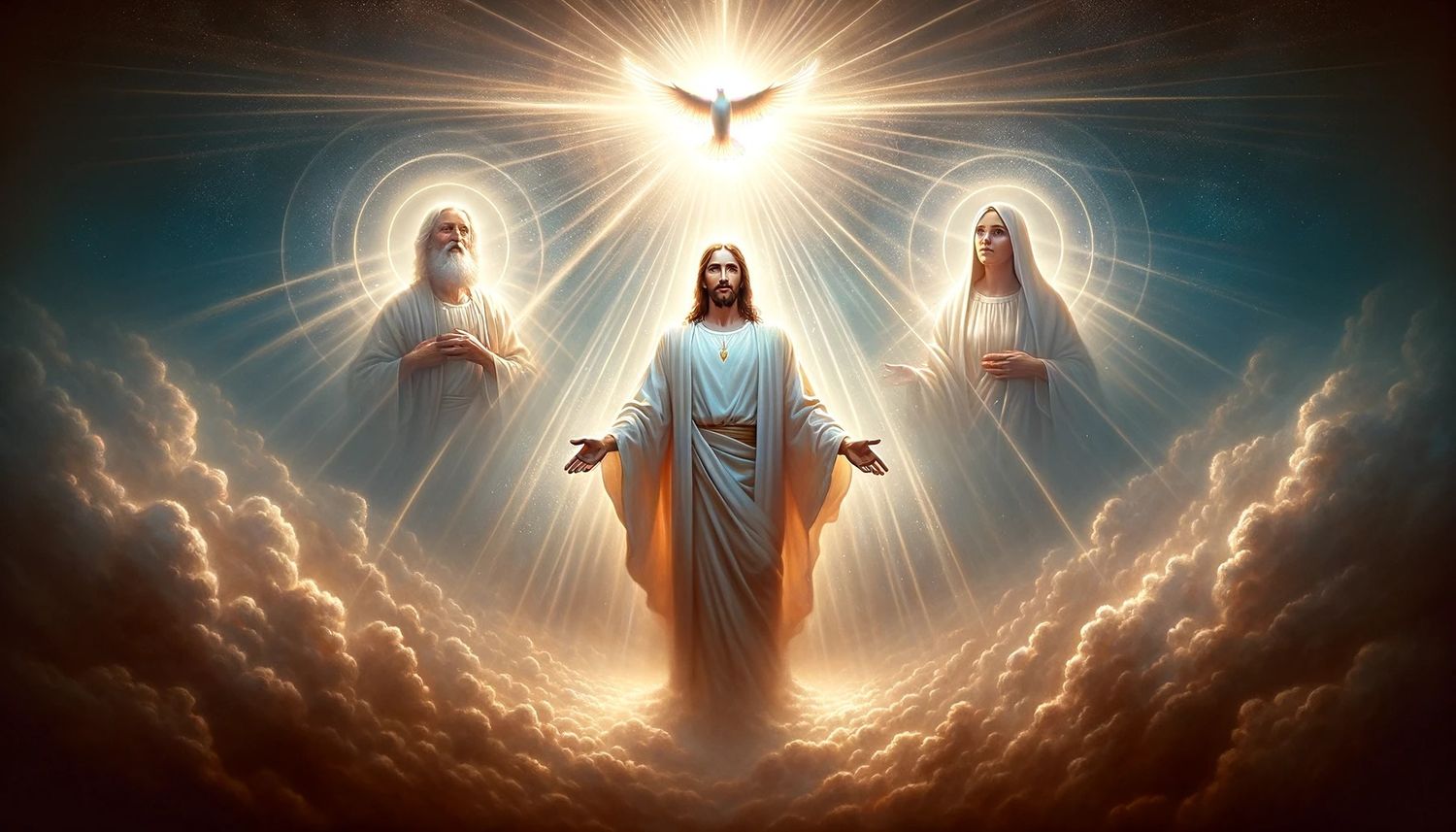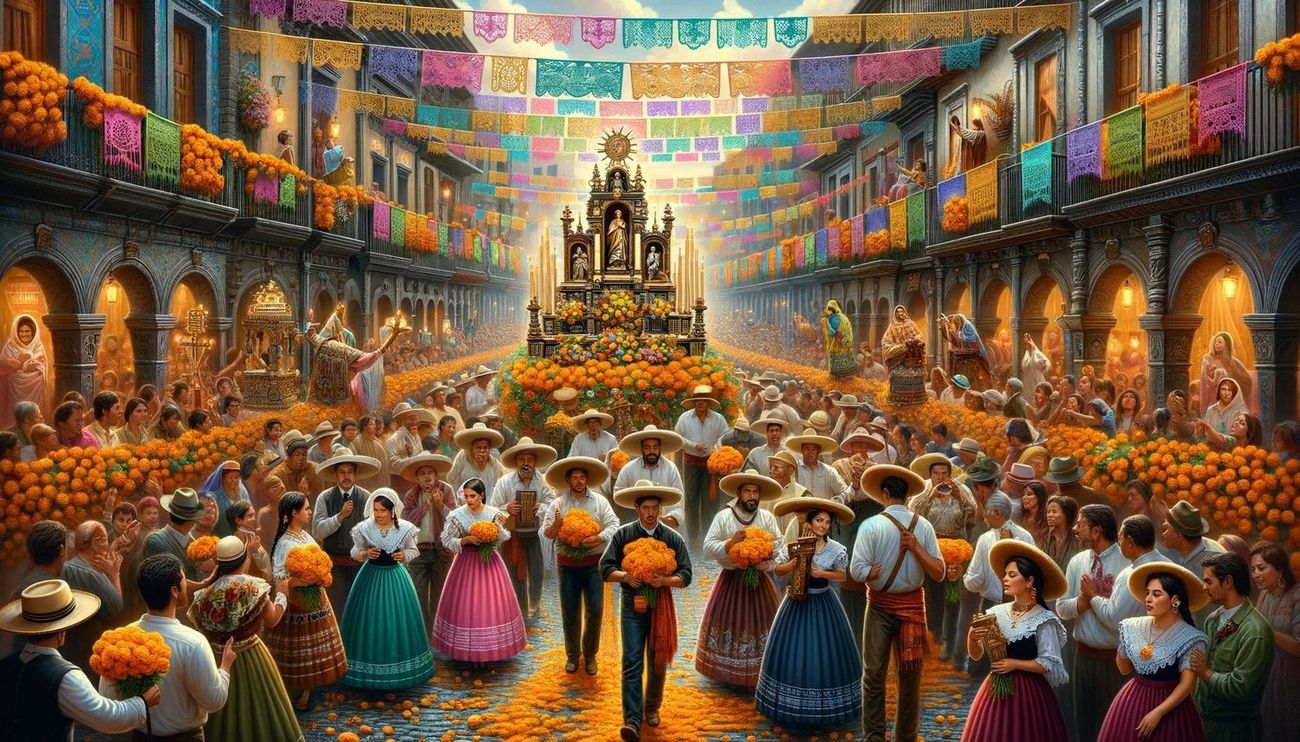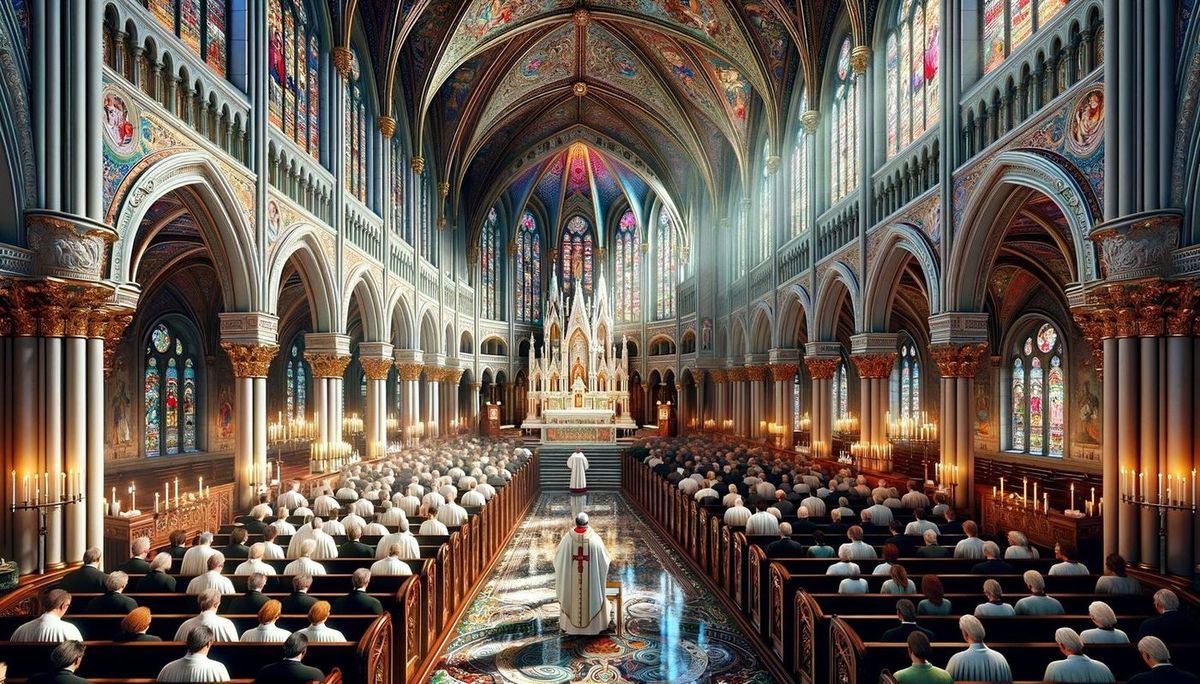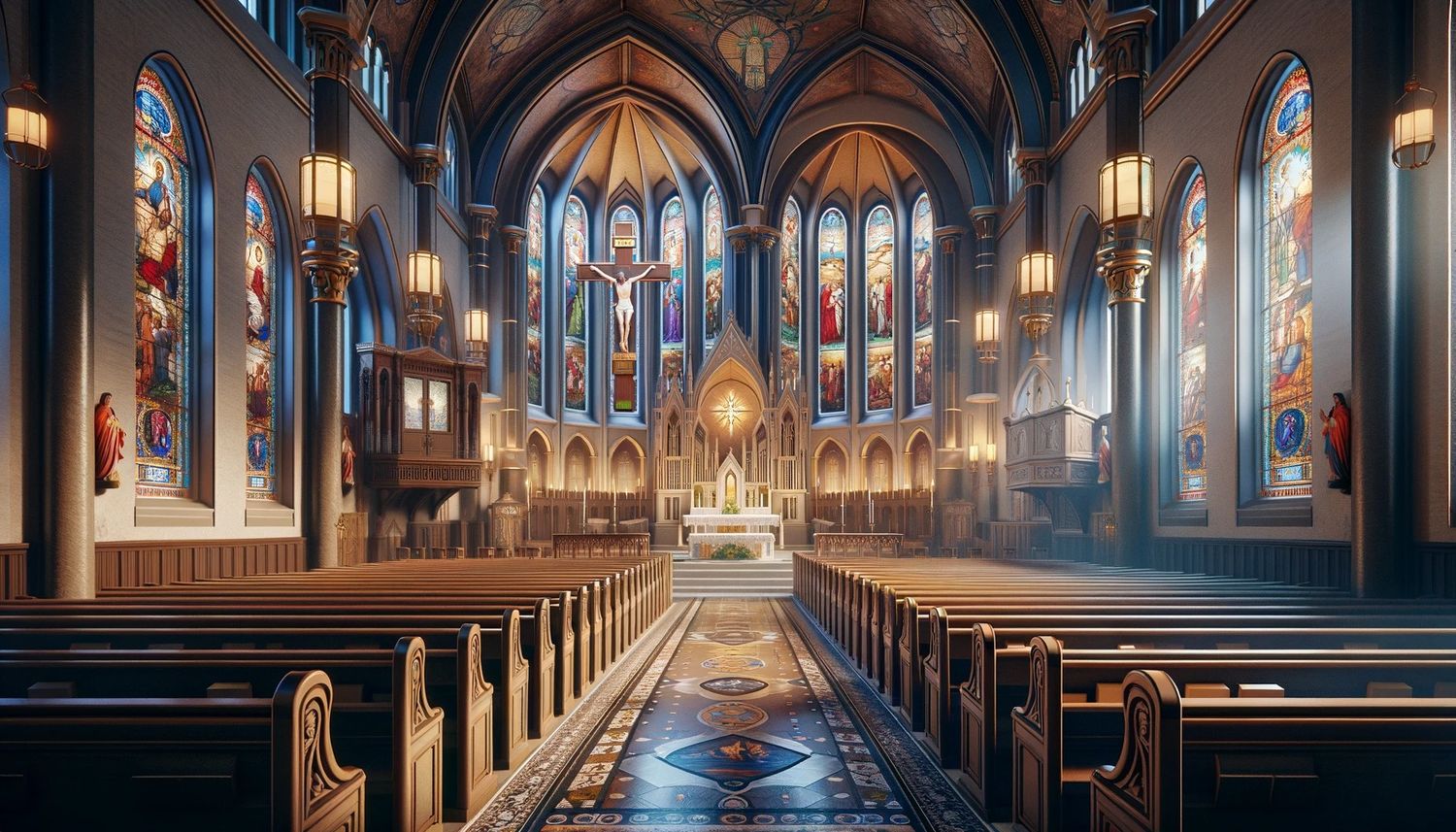Home>Theology and Spirituality>What Is Anglo-Catholicism
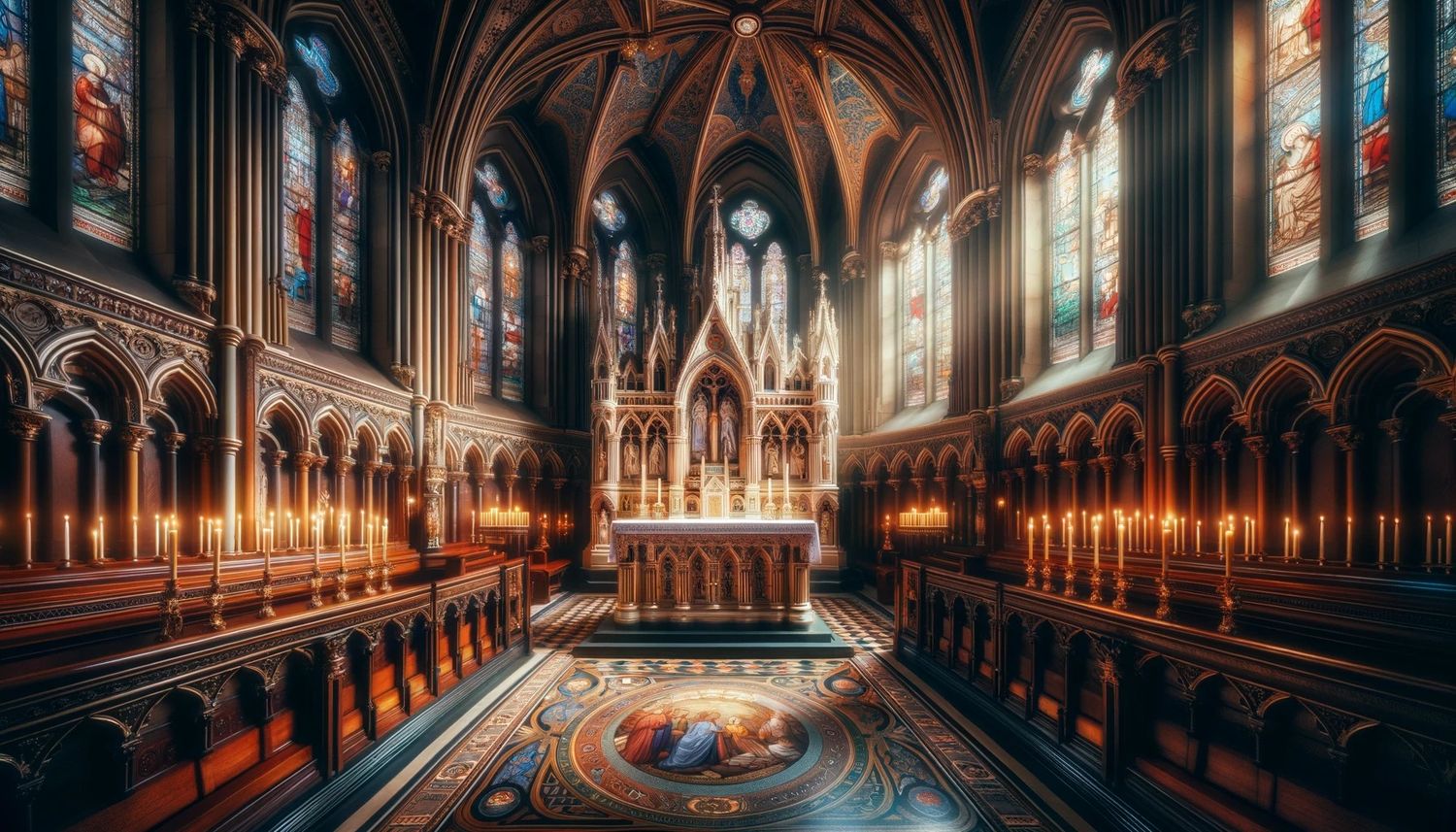

Theology and Spirituality
What Is Anglo-Catholicism
Published: February 15, 2024
Ericka Andersen, an editor at Christian.net, expertly merges digital strategy with content creation, focusing on faith and societal issues. Her communication skills enhance the platform's engaging narratives, fostering meaningful dialogue on belief's impact on society.
Discover the essence of Anglo-Catholicism and its impact on theology and spirituality. Explore the rich traditions and beliefs of this influential religious movement.
(Many of the links in this article redirect to a specific reviewed product. Your purchase of these products through affiliate links helps to generate commission for Christian.net, at no extra cost. Learn more)
Table of Contents
Introduction
Anglo-Catholicism is a rich and diverse tradition within the Anglican Communion that encompasses a deep reverence for liturgy, sacraments, and the historic episcopate. It represents a fusion of Catholic theology and Anglican identity, drawing from the ancient traditions of the early Church while maintaining a distinctively English character.
This movement emerged in the 19th century as a response to the Oxford Movement, a renewal effort within the Church of England that sought to reconnect with its Catholic roots. Anglo-Catholics emphasize the continuity of the Church with the apostolic faith and the importance of tradition in interpreting scripture and shaping Christian life.
At its core, Anglo-Catholicism is a spiritual and theological orientation that seeks to embody the beauty, mystery, and sacramental richness of the Catholic tradition while remaining in communion with the Anglican Church. It is characterized by a deep appreciation for ritual, ornate liturgical worship, and a commitment to social justice and the care of the marginalized.
The movement has had a profound impact on Anglicanism, influencing the development of liturgical practices, ecclesiology, and theological reflection. It has also fostered a renewed interest in the arts, architecture, and sacred music as integral components of worship and spiritual expression.
As we delve into the history, beliefs, and controversies surrounding Anglo-Catholicism, we will gain a deeper understanding of its significance within the broader tapestry of Christian traditions and its enduring influence on the spiritual life of individuals and communities.
Read more: What Is Confirmation In Catholicism
History of Anglo-Catholicism
The roots of Anglo-Catholicism can be traced back to the 19th century and the Oxford Movement, a pivotal period in the history of the Church of England. This movement, led by prominent figures such as John Henry Newman, John Keble, and Edward Pusey, sought to revive traditional Catholic elements within Anglicanism. The Oxford Movement, also known as the Tractarian Movement, emphasized the continuity of the Church of England with the early Christian Church and the importance of sacraments, liturgy, and apostolic succession.
The Oxford Movement sparked a renewed interest in the Church's Catholic heritage and prompted a theological and spiritual reawakening within Anglicanism. Its proponents advocated for a more ceremonial and sacramental approach to worship, drawing inspiration from the ancient traditions of the Church. This movement also emphasized the authority of tradition alongside scripture, challenging the prevailing Protestant influences within the Church of England.
As the Oxford Movement gained momentum, it gave rise to a distinct strand within Anglicanism known as Anglo-Catholicism. This theological orientation embraced the teachings of the early Church Fathers, the veneration of saints, the use of incense, and a robust sacramental theology. Anglo-Catholics sought to embody a more visibly Catholic identity within the Anglican tradition while remaining in communion with the Church of England.
The influence of Anglo-Catholicism extended beyond theological discourse and liturgical practices. It inspired a revival of religious art, architecture, and music, contributing to the embellishment of Anglican worship spaces and the cultivation of a rich aesthetic tradition. The movement's commitment to social justice and the care of the marginalized also left a lasting imprint on Anglican spirituality, emphasizing the inseparable link between worship and compassionate action.
Over the years, Anglo-Catholicism has continued to evolve and adapt to changing social and ecclesiastical landscapes. Its impact has been felt not only within the Anglican Communion but also in ecumenical dialogues and the broader Christian community. The history of Anglo-Catholicism reflects a dynamic interplay between tradition and innovation, spirituality and social engagement, and the enduring quest for a deeper encounter with the divine within the Anglican context.
Beliefs and Practices
Anglo-Catholicism is characterized by a set of distinctive beliefs and practices that reflect its deep reverence for the sacraments, liturgical worship, and the continuity of the Church with the apostolic tradition. These beliefs and practices form the spiritual and theological foundation of the Anglo-Catholic tradition, shaping its identity and guiding the worship and devotional life of its adherents.
Sacramental Theology
Central to Anglo-Catholic belief is a robust sacramental theology that emphasizes the transformative power of the sacraments as outward signs of inward grace. Anglo-Catholics affirm the seven traditional sacraments, including baptism, the Eucharist, confirmation, penance, anointing of the sick, holy orders, and matrimony. They view these sacraments as channels through which God's grace is imparted to the faithful, nurturing their spiritual growth and deepening their union with Christ.
Liturgical Worship
Anglo-Catholic worship is characterized by its rich ceremonial and ornate liturgical practices. The celebration of the Mass, or Holy Eucharist, holds a central place in Anglo-Catholic worship, marked by a profound sense of reverence and awe. The use of incense, liturgical vestments, sacred music, and ritual gestures contributes to the beauty and solemnity of the liturgical experience, creating a sense of transcendent mystery and divine encounter.
Read more: What Is The Symbol Of Catholicism
Marian Devotion
Anglo-Catholicism places a strong emphasis on the veneration of the Blessed Virgin Mary, honoring her as the Theotokos, or Mother of God. This devotion to Mary is expressed through prayers, hymns, and devotional practices that acknowledge her unique role in salvation history and her intercessory presence in the life of the Church. The Anglo-Catholic tradition fosters a deep affection for Mary as a model of faith and humility, reflecting her significance within the broader Catholic tradition.
Apostolic Succession
The belief in apostolic succession, the unbroken lineage of bishops tracing back to the apostles, is integral to Anglo-Catholic identity. This understanding of episcopal authority underscores the continuity of the Church with the apostolic era and the importance of validly ordained clergy in administering the sacraments and shepherding the faithful. Anglo-Catholics affirm the historic episcopate as a visible sign of the Church's unity and catholicity.
Social Justice and Compassion
In addition to its sacramental and liturgical emphases, Anglo-Catholicism is deeply committed to social justice and the alleviation of human suffering. Inspired by the Gospel imperative to care for the marginalized and oppressed, Anglo-Catholics engage in various forms of social outreach, advocating for the dignity of all people and working towards a more just and compassionate society. This holistic approach to faith underscores the inseparable connection between worship and the pursuit of social righteousness.
The beliefs and practices of Anglo-Catholicism reflect a profound engagement with the sacramental, liturgical, and social dimensions of Christian faith, embodying a spirituality that seeks to integrate the transcendent and the immanent, the sacred and the worldly. These distinctive elements contribute to the richness and depth of the Anglo-Catholic tradition, shaping the spiritual lives of its adherents and fostering a vibrant expression of faith within the Anglican Communion.
Influence and Impact
The influence of Anglo-Catholicism extends far beyond the boundaries of the Anglican Communion, leaving a profound impact on the spiritual, cultural, and social landscapes of Christianity. This theological orientation has shaped the ethos of Anglicanism and contributed to broader conversations within the Christian tradition, leaving a lasting imprint on worship, theology, and social engagement.
Read more: What Is Evil In Catholicism
Liturgical Renewal and Aesthetic Tradition
Anglo-Catholicism has played a pivotal role in revitalizing liturgical practices within Anglicanism. Its emphasis on ceremonial worship, sacred music, and the visual arts has enriched the aesthetic and sensory dimensions of Christian worship. The movement's commitment to the beauty and solemnity of liturgical expression has inspired a renaissance of religious art, architecture, and music, contributing to the embellishment of Anglican worship spaces and the cultivation of a rich aesthetic tradition that continues to resonate across denominational boundaries.
Theological Dialogue and Ecumenical Engagement
The theological contributions of Anglo-Catholicism have sparked meaningful dialogue and exchange within the broader Christian community. Its emphasis on sacramental theology, apostolic succession, and the authority of tradition has fostered fruitful conversations with Catholic, Orthodox, and Protestant traditions. This engagement has deepened the appreciation for diverse theological perspectives and has contributed to ecumenical efforts aimed at fostering greater unity and understanding among Christian denominations.
Social Justice and Advocacy
The commitment of Anglo-Catholicism to social justice and compassionate action has had a tangible impact on communities around the world. Inspired by the Gospel imperative to care for the marginalized and oppressed, Anglo-Catholics have been at the forefront of social advocacy, championing causes related to poverty alleviation, human rights, and the dignity of all people. This holistic approach to faith has underscored the inseparable connection between worship and the pursuit of social righteousness, inspiring individuals and communities to actively engage in transformative social initiatives.
Global Reach and Cultural Influence
The influence of Anglo-Catholicism has transcended geographical boundaries, impacting diverse cultural contexts and regions around the world. Its emphasis on the universality of the Church and the catholicity of the faith has resonated with communities across continents, contributing to the global spread of Anglicanism and the enrichment of local spiritual practices. The movement's embrace of diverse cultural expressions within worship has fostered a sense of inclusivity and cultural appreciation, nurturing a vibrant tapestry of global Anglican identity.
The influence and impact of Anglo-Catholicism continue to shape the trajectory of Anglicanism and contribute to the broader narrative of Christian spirituality. Its enduring legacy is evident in the rich tapestry of liturgical expression, theological dialogue, social advocacy, and global outreach, reflecting a tradition that remains deeply rooted in the pursuit of a more profound encounter with the divine and a more just and compassionate world.
Read more: What Is Grace In Catholicism
Controversies and Criticisms
The theological orientation of Anglo-Catholicism has not been without its controversies and criticisms, eliciting diverse perspectives and debates within the Anglican Communion and the broader Christian community. These contentious issues have centered on doctrinal, ecclesiological, and social concerns, reflecting the complex and multifaceted nature of the movement.
One of the primary areas of contention revolves around the interpretation of Catholic doctrine within the Anglican context. Critics have raised objections to certain theological positions held by Anglo-Catholics, particularly in relation to the veneration of saints, the role of Mary, and the understanding of the Eucharist. These differences in theological emphasis have at times led to tensions and disagreements within Anglican circles, prompting critical reflections on the compatibility of Anglo-Catholic beliefs with the broader Anglican tradition.
Ecclesiologically, the commitment of Anglo-Catholicism to the historic episcopate and apostolic succession has been a point of contention, particularly in ecumenical dialogues with other Christian traditions. Questions regarding the validity and implications of apostolic succession, as well as its significance in relation to the unity of the Church, have sparked debates and disagreements, highlighting the complexities of interdenominational relations and the diverse understandings of episcopal authority.
Socially, Anglo-Catholicism's emphasis on traditional liturgical practices and ceremonial worship has drawn criticism from those who advocate for more simplified and accessible forms of worship. The perceived extravagance and ritualism associated with Anglo-Catholic worship have been scrutinized for their potential to alienate individuals who favor a more contemporary and informal approach to spirituality, raising questions about the inclusivity and relevance of Anglo-Catholic traditions in a rapidly changing cultural landscape.
Furthermore, the movement's stance on social issues, particularly matters related to gender and sexuality, has been a source of controversy within Anglicanism. Debates surrounding the ordination of women, the affirmation of LGBTQ+ individuals, and reproductive rights have exposed deep divisions within the Anglican Communion, with Anglo-Catholic perspectives often diverging from more progressive or inclusive interpretations of these issues.
The controversies and criticisms surrounding Anglo-Catholicism reflect the dynamic and evolving nature of theological discourse within the Anglican tradition. These tensions underscore the diverse theological, ecclesiological, and social perspectives that coexist within Anglicanism, prompting ongoing dialogue and reflection on the complexities of faith, tradition, and contemporary realities.
Conclusion
In conclusion, Anglo-Catholicism stands as a vibrant and multifaceted tradition within the Anglican Communion, embodying a rich tapestry of sacramental, liturgical, and social emphases that have left an indelible mark on the spiritual, cultural, and theological landscapes of Christianity. The movement's historical roots in the Oxford Movement and its subsequent evolution have shaped a tradition that reflects a deep commitment to the continuity of the Church with the apostolic faith, the beauty and solemnity of liturgical worship, and the pursuit of social justice and compassion.
The beliefs and practices of Anglo-Catholicism, including its robust sacramental theology, ornate liturgical worship, Marian devotion, and commitment to social justice, have contributed to a dynamic and multifaceted expression of faith within the Anglican tradition. These distinctive elements have fostered a sense of continuity with the ancient traditions of the Church while inspiring a renewed engagement with the spiritual, aesthetic, and social dimensions of Christian life.
The influence and impact of Anglo-Catholicism extend beyond theological discourse and liturgical practices, encompassing a global reach and cultural influence that have enriched the diversity and inclusivity of Anglicanism. The movement's contributions to liturgical renewal, theological dialogue, social advocacy, and global outreach reflect a tradition that remains deeply rooted in the pursuit of a more profound encounter with the divine and a more just and compassionate world.
Despite the controversies and criticisms that have arisen, the enduring legacy of Anglo-Catholicism underscores its significance within the broader narrative of Christian spirituality. The movement's ability to navigate theological tensions, engage in ecumenical dialogue, and inspire social transformation speaks to its resilience and adaptability in the face of evolving cultural and ecclesiastical landscapes.
As Anglo-Catholicism continues to evolve and engage with contemporary challenges, its enduring commitment to sacramental richness, liturgical beauty, and social justice advocacy positions it as a vital and dynamic force within the Anglican Communion and the broader Christian community. The tradition's ability to integrate the transcendent and the immanent, the sacred and the worldly, reflects a spirituality that resonates with the enduring quest for a deeper encounter with the divine and a more just and compassionate world.
